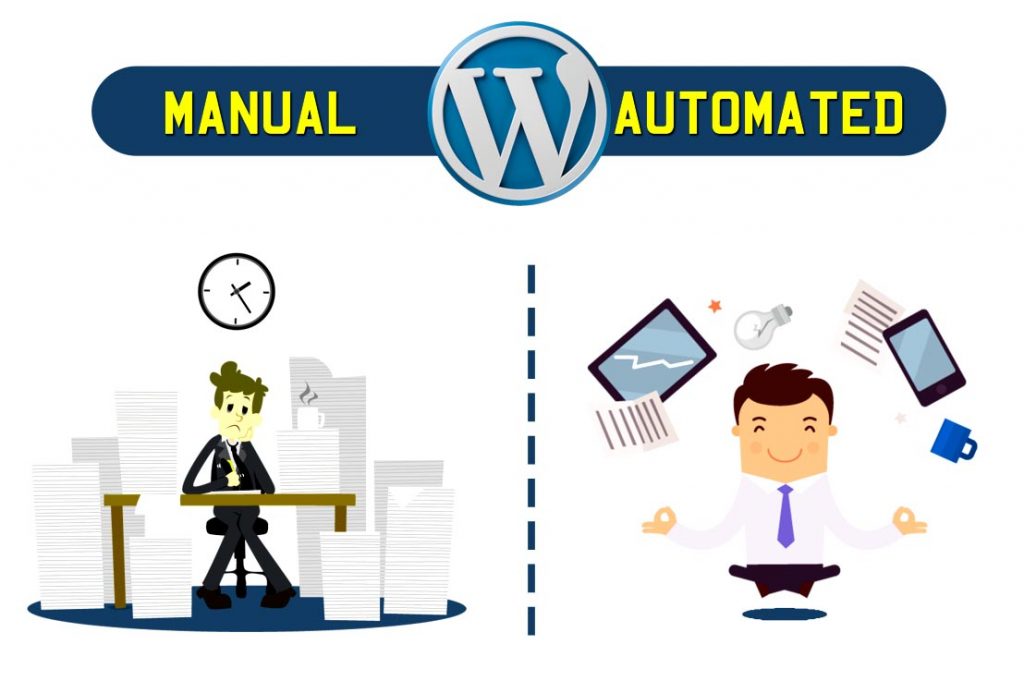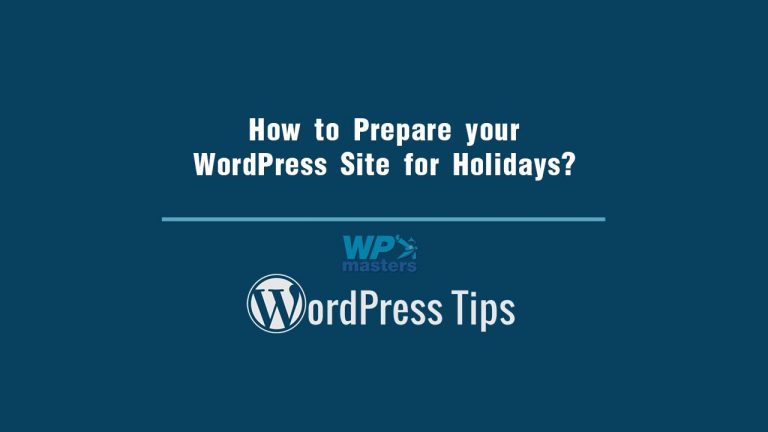It is December and we are coming to the close of this year. You are preparing for a few days off around Christmas, and quite possibly a winter vacation, but the real question now is have you prepared your WordPress site for holidays?
We know how hard it is leaving work behind, though being nervous just staying local and burn-out is not a great option.
Spending time with family, relaxing and having fun is important as you will improve your health, strengthen focus and increase productivity once you are back.

Fear not because this article is aimed to help you prepare your WordPress website for your time away for Christmas or a trip to somewhere warm.
Let WordPress work for you
The most common reason why people do not leave work for holidays is that they feel their workload will become overwhelming once they come back, or they simply have no one to cover for them while they are away.
When you leave for a vacation you need to know that the site is secure, performance is top-notch and SEO has no issues. It may look like mission impossible but you should be aware that WordPress can help you get around these obstacles.
How to prepare the site in three key steps
One of the main issues for a WordPress website at this time of year is high traffic surges that lead to lower website performance which can hurt your business. This is why we will talk about performance first.
Step 1. Remove unreliable and slow WordPress plugins
Your WordPress website’s overall performance greatly depends on server-side performance. One thing that can be anticipated is the high visitor’s traffic which means we have to optimize the number of scripts running with your website.
Seasoned WordPress veterans know by now that the best practice, in this case, is to make a run-down of your WordPress plugins and remove any that are not essential to functional website operation.
Feel free to contact your hosting company and ask them to check if any of the plugins your website is using are on their “discouraged” or “banned” listings. Thing is hosting companies that have vast experience with different WordPress websites and they can recognize plugins that are using more computing power than needed.
Note that the replacement plugins will need a few weeks to show any weakness so consider this doing as your first step now, so you can have time to revert any negative changes.
Step 2. Review your WordPress caching options
WordPress sites that target a global audience simply must have a caching and/or CDN plugin that will help them deliver data to remote users.
Now, if your website is not using such plugins, know that these can provide benefits in situations of very high traffic as they will offload data traffic to content-delivery-network servers.
Recommendations on this subject that are endorsed by Google are:
- Implementing server (CDN) or media (images and video) caching
- Implement Gzip compression
- Minimize CSS, HTML, and scripts with a plugin
A plugin such as WP Rocket or PressCache can help you optimize your site for performance and ensure proper operation even when you are away.
Step 3. Overall site cleanup
Reviewing every single file on your site may seem unnecessary because you only use 10% of your available hosting storage, but this is exactly what can lead to your hosting resources stress.
If you lighten your storage footprint, consequently your website will perform faster, and for this step, we will not be using a plugin for an automated process, but instead, we recommend doing this manually.
Media files are the ones that take up most of your used site storage space so we would mention these first. Sift through your media: images, video, PDF, presentations and delete heavy files that are not necessary.
We already mentioned plugins, but we mention them again because the previous step may encourage you to deactivate unused or unutilized plugins, but now we want to make sure you have deleted them altogether.
Something that may be overlooked is having multiple themes installed, while your site is using only one, again, delete all themes you are not utilizing.
Review draft pages and posts that have not been fully realized into published content, and if possible delete them, while I would note you may want to make a copy of content locally on your personal computer, for future use.
Before you leave for holidays make a quick through comments and moderate any that are outstanding, while deleting unwanted ones.
The merit of performance benchmarks in this case
I would imagine that some of you have already done this – make a performance analysis before you did any of the cleanup work, and now that you are done you can make another analysis round.
Now, for some this “holiday cleanup” may not provide tangible performance improvements with Google PageSpeed Insights or other site performance tests, but keep in mind our cleanup was aimed at the unexpected surge of traffic that may hit your website while you are away.

If you want to make a conclusive test, a tool such as the Load Impact can be used to give you that peace of mind, knowing your WordPress website will be able to handle a visitor surge during holidays.
A few tips so we can truly conclude your site for holidays
Just before you leave, it would not hurt to make a few security checks, login password reiteration, ensure your two-factor authentication is working properly, while installing an SSL certificate would be an excellent choice.
A whole website backup can save you a lot of trouble, so have one prepared before you leave, though again it would be better to have a WordPress plugin handle making backups on a schedule even while you are not there, so you have a recent one just in case.
WordPress plugins can provide a lot of automation which you should use to offset the burden, even when you are present at work, let alone being away.
Bear in mind that not all holidays lead to reduced stress and improves levels of productivity once you are back to work. Statistics show that a stressful vacation can completely diminish the expected benefits of having time off work.
At least worrying about your WordPress website really shouldn’t be a reason to stay at work when you have prepared your site for holidays.

